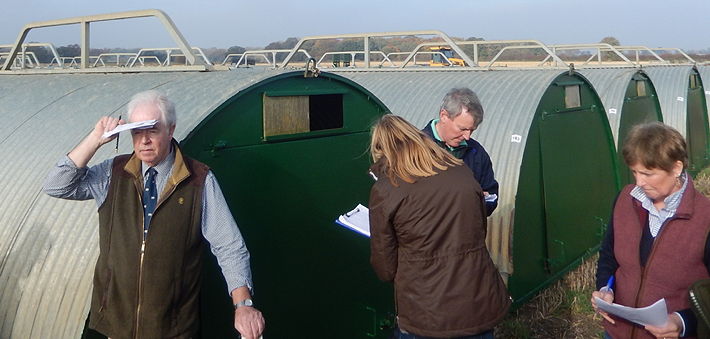Despite the weather, a few little flickers of light are staring to appear as far as the British pig industry is concerned.
The SPP has gone up by 0.91p to stand at 138.77p reflecting the upward trend in the EU where the influential German producer price has gone up by 5 Cents, which is equivalent to just over 4p/kg.
However, average slaughter weights are still far too high at 94.86kg and although UK slaughter numbers are down by approximately 8% YOY because of soaring deadweights, a greater volume of pig meat has still been produced.
No signs yet of an increase in GB weekly contribution prices which have mainly remained at stand on levels for yet another week with the league table positions between 130p/kg at the bottom end and 138p/kg at the top.
The spot market is still being plagued by overweights and indifferent retail demand with the result that it is still difficult to get more than 110p – 114p/kg in many cases.
Overweight pigs are still eating their heads off and getting even heavier with few real signs of an end to this problem although some progress is being made, but at a very very low price.
Despite the Euro slipping from 83.95p a week ago to 83.5p today, cull sow prices are taking the first shaky steps on the road to recovery with reports that export values have improved by 1p – 2p/kg, but there is still a long way to go before this filters through to the whole supply chain with most culls worth between 23p – 26p/kg.
Weaner prices linked to the SPP appear to have levelled with most RSPCA assured 7kg piglets trading in the £32.50 – £37/head range, but as previously it remains difficult if not impossible to find homes for spot weaners other than at very low levels.
Unfortunately feed ingredient prices still remain at uneconomic levels as far as pig farmers are concerned with the latest weekly UK spot feed wheat average a shade easier at £216.17/t, but the ongoing unsettled situation in the Ukraine could spike cereal prices to the detriment of our pig industry.
On the futures market UK feed wheat traded for March delivery at £221/t and for September at £200/t. Feed barley futures are also reflecting a similar trend with March deals agreed at £210/t and £186/t for September.
Protein values are doing us no favours either with Hipro soya for March delivery at £447/t and for November – April next year at £436/t. Rapemeal has hardened slightly at £321/t for March – April and August – November a slightly more reasonable £260/t.
And finally, although it is good to be able to report some positive signs there is still a long way to go before pig producers and their bank managers can breathe more easily.
Covid is continuing to haunt the processing sector with staff absentee rates still on the high side as well as news that some of the migrant staff in the UK have already decided to return home where the cost of living and housing in particular is much cheaper than it is over here.
These factors have conspired to limit abattoir throughputs and may unfortunately encourage yet more imports to come in this direction, especially if they continue to undercut UK values by a country mile.
And finally, finally, in addition to all their day to day problems, this week outdoor producers have in particular had to cope with the havoc caused by Storm Dudley followed in quick succession by Storm Eunice with the prospect of pig tents and huts crossing the Channel by air and ending up in the EU, which in the view of many is where the UK pig industry should also be!




